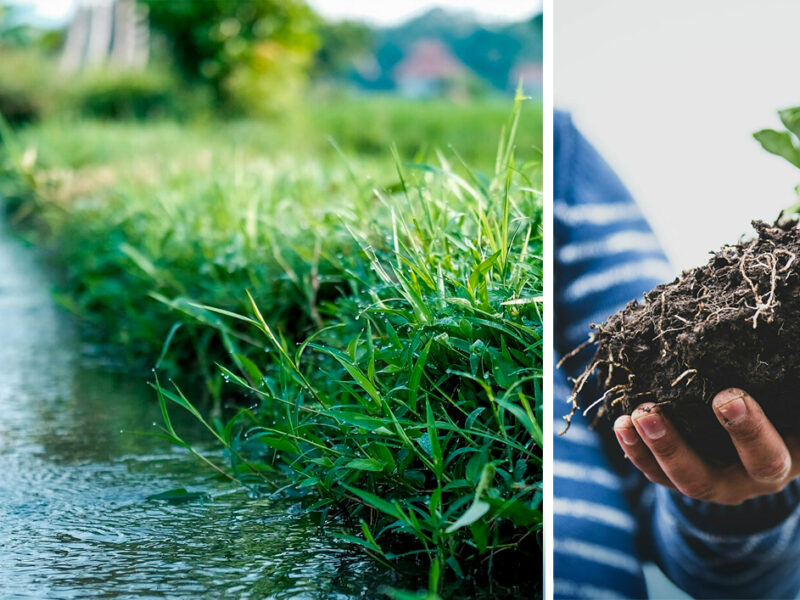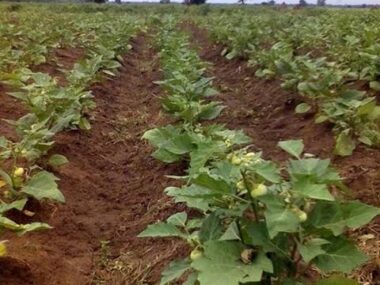Water is a precious resource essential for agriculture, industry, and human survival. However, increasing water scarcity, pollution, and climate change pose significant challenges to sustainable water management worldwide. Sustainable water management practices aim to optimize water use, protect water quality, and ensure equitable access while preserving ecosystems and biodiversity. This article explores various sustainable water management practices and their importance in addressing global water challenges.

Sustainable water management is crucial for several reasons:
Food Security: Agriculture is the largest consumer of freshwater globally, accounting for around 70% of total water withdrawals. Sustainable water management practices are essential for ensuring reliable water supplies for agricultural production, thereby safeguarding food security.
Ecosystem Health: Rivers, lakes, wetlands, and other freshwater ecosystems provide vital services, including water purification, flood control, and habitat for wildlife. Sustainable water management practices help protect and restore these ecosystems, maintaining biodiversity and supporting ecosystem services.
Climate Resilience: Climate change is altering precipitation patterns, increasing the frequency and intensity of droughts and floods. Sustainable water management practices, such as water conservation and efficient irrigation, enhance resilience to climate variability and extremes.
Human Health: Access to safe and clean drinking water is fundamental for human health. Sustainable water management practices, including water treatment and sanitation, help prevent waterborne diseases and improve public health outcomes.
Key Sustainable Water Management Practices
Water Conservation
Efficient Irrigation: Adopting water-efficient irrigation methods, such as drip irrigation and sprinkler systems, reduces water losses due to evaporation and runoff.
Water-Saving Technologies: Installing water-saving technologies, such as low-flow fixtures, water-efficient appliances, and rainwater harvesting systems, helps conserve water in households, industries, and agriculture.
Watershed Management
Land Use Planning: Implementing land use planning measures, such as riparian buffers and conservation easements, protects water quality by minimizing runoff and soil erosion.
Reforestation: Restoring forests and natural vegetation in watersheds helps regulate hydrological cycles, prevent erosion, and maintain water quality.
Water Reuse and Recycling
Wastewater Treatment: Treating and recycling wastewater for non-potable uses, such as irrigation, industrial processes, and landscape watering, conserves freshwater resources and reduces pollution.
Greywater Recycling: Reusing greywater from sinks, showers, and laundry for irrigation and toilet flushing reduces demand on freshwater sources and wastewater treatment facilities.
Integrated Water Resources Management (IWRM)
Holistic Approach: IWRM promotes the coordinated development and management of water, land, and related resources to maximize economic and social welfare while preserving ecosystems.
Stakeholder Engagement: Engaging stakeholders, including governments, communities, industries, and NGOs, fosters collaborative decision-making and ensures the equitable distribution of water resources.
Water-Energy-Food Nexus
Integrated Approach: Recognizing the interdependencies between water, energy, and food systems, sustainable water management considers the trade-offs and synergies among these sectors to achieve sustainable development goals.
Efficiency Improvements: Improving water-use efficiency in energy and food production reduces the overall water footprint and enhances resource efficiency.
Climate-Resilient Infrastructure
Infrastructure Upgrades: Investing in climate-resilient infrastructure, such as stormwater management systems, flood barriers, and water storage facilities, helps mitigate the impacts of climate change-related hazards.
Nature-Based Solutions: Implementing nature-based solutions, such as green infrastructure and restored wetlands, enhances resilience to climate change while providing multiple co-benefits for water management and biodiversity.
Case Studies and Success Stories
Singapore’s NEWater
Singapore’s NEWater program is a successful example of water reuse and recycling. NEWater, produced through advanced wastewater treatment and purification technologies, meets up to 40% of the country’s water demand, reducing reliance on imported water sources.
Israel’s Drip Irrigation
Israel’s adoption of drip irrigation technology has significantly improved water-use efficiency in agriculture. Drip irrigation delivers water directly to the roots of plants, reducing evaporation and runoff. Israel’s expertise in drip irrigation has made it a global leader in water-efficient agriculture.
Rwanda’s Land Husbandry, Water Harvesting, and Hillside Irrigation (LWH)
Rwanda’s LWH program promotes sustainable land management practices, including soil conservation, agroforestry, and hillside irrigation, to improve water availability and soil fertility. The program has increased crop yields, reduced erosion, and improved livelihoods for rural communities.
Policy and Governance
Water Governance Frameworks
Establishing robust water governance frameworks, including legislation, regulations, and institutional mechanisms, is essential for effective and sustainable water management.
Integrated water resource management (IWRM) approaches that involve multiple stakeholders in decision-making processes help ensure the equitable and sustainable use of water resources.
Water Pricing and Economic Instruments
Implementing water pricing mechanisms, such as volumetric pricing and water tariffs based on the polluter pays principle, encourages water conservation and efficient use.
Economic instruments, such as water trading and payments for ecosystem services, provide incentives for sustainable water management practices.
Future Directions and Challenges
Technological Innovations
Continued advancements in water treatment technologies, smart water metering, and data analytics will further enhance the efficiency and effectiveness of sustainable water management practices.
Climate Change Adaptation
Adapting to the impacts of climate change, such as changing precipitation patterns and increasing frequency of extreme weather events, will require innovative solutions and investments in resilient infrastructure.
Capacity Building and Knowledge Sharing
Building the capacity of water managers, policymakers, and local communities through training programs and knowledge-sharing initiatives is critical for implementing sustainable water management practices.
Conclusion
Sustainable water management practices are essential for addressing global water challenges, ensuring water security, and promoting sustainable development. By adopting water conservation measures, implementing integrated water resources management approaches, and investing in climate-resilient infrastructure, communities can safeguard freshwater resources for future generations while supporting economic growth and environmental protection. Collaboration among governments, stakeholders, and the private sector is key to achieving sustainable water management goals and building a more water-secure future.










